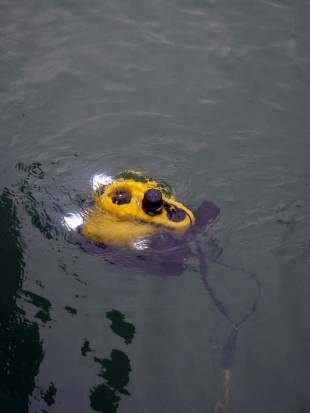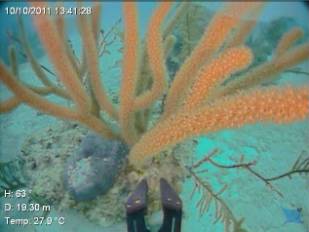The Museum has recently acquired a great bit of kit that allows us to complete our work in the Bahamas. It’s a remotely-operated vehicle that we lovingly call REX (short for Remotely-operated vehicle for Education and eXploration).
It has the ability to go to depths of 200 metres and we’ll be using it to retrieve the experiments that were laid down late last year. It has a robotic arm too and apparently if you can play XBox you can operate it pretty easily!
The really special thing about REX is that it has a HD camera attached to it so we can film amazing footage of the sea and the life within it. It’s important for scientists to observe how animals behave in their natural environment, especially when it comes to creatures like jellyfish, as when you bring them up to the surface they look like amorphous blobs.
Like I’ve said before I’m really looking forward to seeing sharks and going by the video shot last year I won’t be disappointed!





